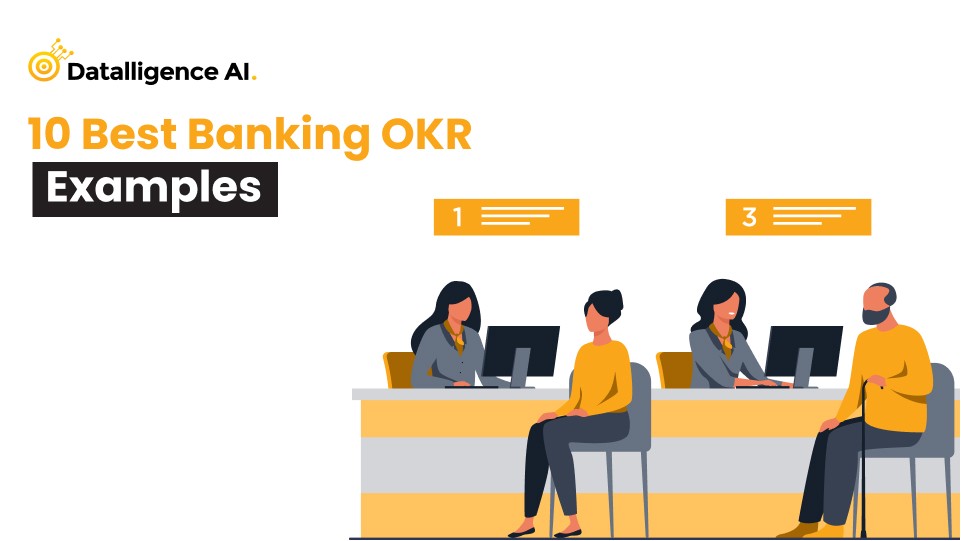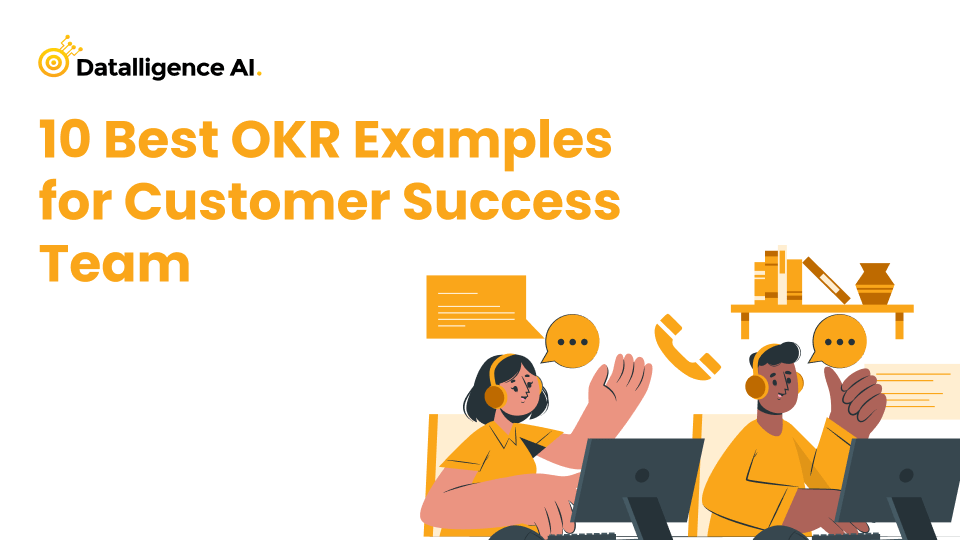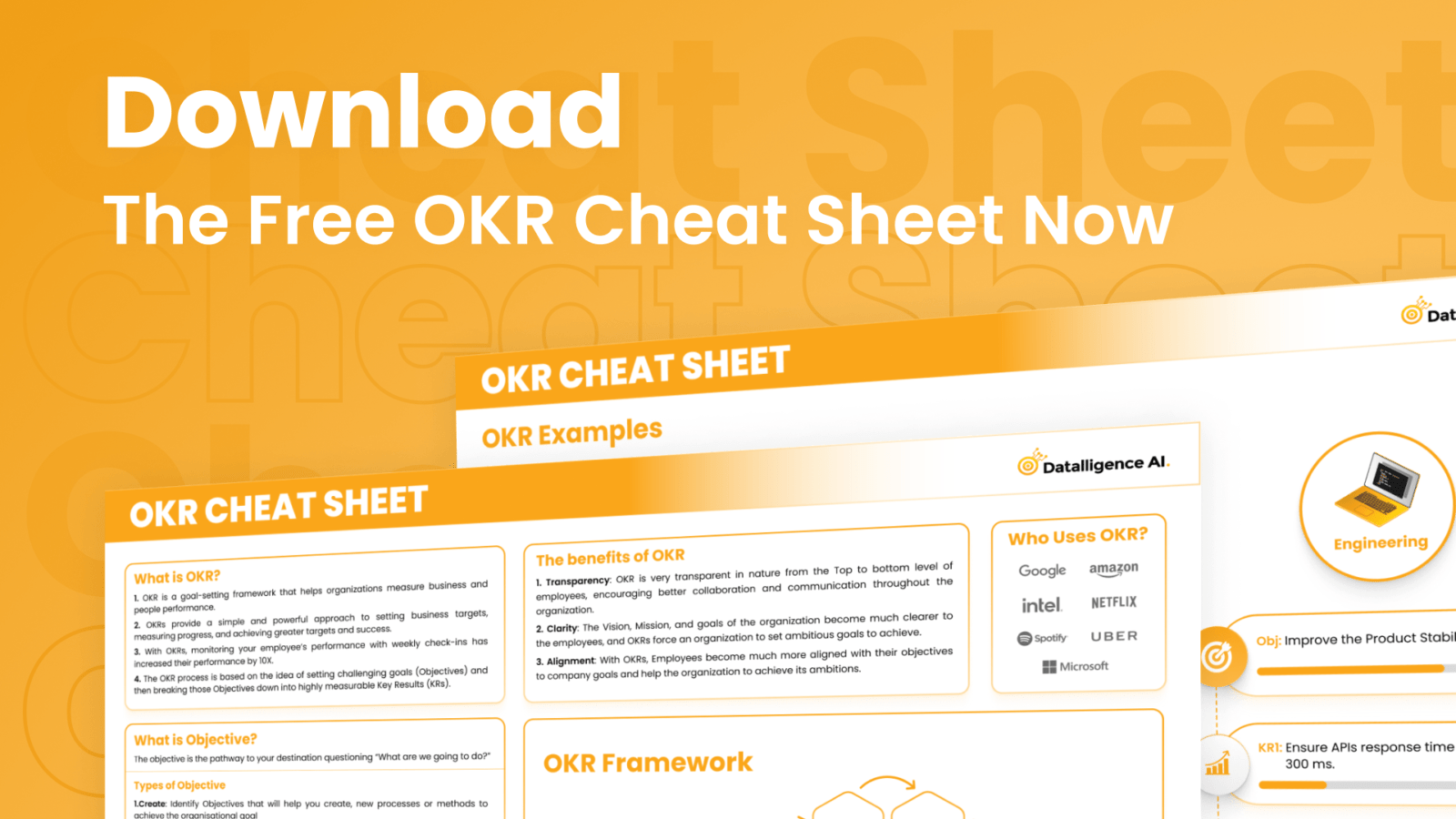In today’s fast-paced business environment, attracting and retaining top talent is essential for organizational success. HR teams play a critical role in streamlining recruitment efforts and building a strong talent pipeline. However, with evolving workforce dynamics and multiple priorities, HR professionals often face challenges in optimizing their talent acquisition strategy, candidate experience, time-to-hire, offer acceptance rates, and OKR examples for recruitment success effectively.
This is where objectives and key results (OKRs) come into play. OKRs provide a strategic goal-setting framework that helps HR teams align their objectives with the overall organizational vision. By setting clear and measurable goals, HR OKRs enable teams to focus their efforts, track progress, and drive okr for recruitment success.
In this article, we will explore the 12 best examples of HR OKRs to inspire and guide your talent acquisition strategies. From improving candidate experience to enhancing employer brand awareness, these examples encompass various areas of HR that can benefit from OKR implementation.
Enhancing Employer Brand Awareness
Objective: Increase Employer Brand Awareness in the Market
- Key Result 1: Increase the number of LinkedIn followers of our company page by 20%.
- Key Result 2: Conduct a comprehensive employer brand perception survey and achieve an average score of 4 out of 5.
- Key Result 3: Collaborate with the marketing team to create and publish engaging employer brand content on social media platforms at least twice a week.
By focusing on enhancing employer brand awareness, HR teams can attract top talent and establish their organization as an employer of choice.
Improving Candidate Experience
Objective: Provide an Exceptional Candidate Experience
- Key Result 1: Reduce the time from the initial interview to making an offer from 16 to 6 working days.
- Key Result 2: Implement a candidate feedback system and achieve a satisfaction score of 4 out of 5.
- Key Result 3: Develop a comprehensive onboarding program for new hires and achieve an onboarding satisfaction score of 90%.
By streamlining the recruitment process and prioritizing candidate experience, HR teams can attract and retain top talent while ensuring a positive employer brand image.
Strengthening Diversity and Inclusion
Objective: Foster Diversity and Inclusion in the Workplace
- Key Result 1: Increase the diversity index for leadership levels from 0.1 to 0.25.
- Key Result 2: Conduct diversity and inclusion training for all employees and achieve a completion rate of 100%.
- Key Result 3: Improve employee satisfaction survey scores among underrepresented groups from 0.4 to 0.8.
By setting HR OKRs focused on diversity and inclusion, organizations can create a more inclusive work environment and leverage the benefits of diverse perspectives.
Streamlining Recruitment Processes
Objective: Improve Recruitment Processes for Efficiency
- Key Result 1: Decrease the time from the initial interview to making an offer from 16 to 6 working days.
- Key Result 2: Increase the number of qualified candidates per job posting from 10 to 15.
- Key Result 3: Implement an applicant tracking system (ATS) and achieve a 90% user adoption rate.
By optimizing recruitment processes, HR teams can reduce time-to-hire, attract a larger pool of qualified candidates, and enhance overall recruiting efficiency.
Developing Talent Pipelines
Objective: Build Robust Talent Pipelines
- Key Result 1: Increase the number of passive candidates in the talent pipeline by 30%.
- Key Result 2: Develop strategic partnerships with educational institutions and industry associations to expand the talent pool.
- Key Result 3: Implement a talent relationship management system (TRM) to effectively nurture relationships with potential candidates.
By proactively building talent pipelines, HR teams can ensure a continuous flow of qualified candidates and reduce time for critical positions.
Enhancing Employee Referral Programs
Objective: Increase Employee Referrals for Hiring
- Key Result 1: Increase the number of referred applicants by 50%.
- Key Result 2: Achieve a 65% closure rate for positions filled through employee referrals.
- Key Result 3: Implement a recognition and reward program for employees who refer successful candidates.
By incentivizing and promoting employee referrals, HR teams can tap into their existing workforce’s networks and attract high-quality candidates.
Improving Onboarding Experience
Objective: Enhance New Hire Onboarding Experience
- Key Result 1: Achieve a 90% satisfaction score for new hire onboarding.
- Key Result 2: Reduce the average time for new hires to reach full productivity from 90 days to 60 days.
- Key Result 3: Implement a mentorship program for new hires and achieve a participation rate of 80%.
By prioritizing a seamless onboarding experience, HR teams can improve employee retention rates and accelerate time-to-productivity for new hires.
Upskilling and Professional Development
Objective: Foster Continuous Learning and Development
- Key Result 1: Increase employee participation in training and development programs from 40% to 70%.
- Key Result 2: Achieve an average score of 80% in post-training assessments.
- Key Result 3: Implement a mentorship program for high-potential employees and achieve a participation rate of 50%.
By investing in employee upskilling and professional development, HR teams can enhance employee engagement and promote a culture of continuous learning.
Improving Employee Engagement
Objective: Boost Employee Engagement and Satisfaction
- Key Result 1: Increase employee engagement survey response rate from 45% to 65%.
- Key Result 2: Implement monthly team-building activities with at least 80% participation.
- Key Result 3: Achieve an average employee satisfaction score of 4.5 out of 5.
By prioritizing employee engagement, HR teams can create a positive work environment, foster loyalty, and drive overall organizational success.
Enhancing Performance Management
Objective: Improve Performance Management Processes
- Key Result 1: Implement a 360-degree feedback system and achieve a participation rate of 80%.
- Key Result 2: Set clear and measurable performance goals for all employees.
- Key Result 3: Provide regular coaching and development opportunities for managers to improve their performance management skills.
By implementing effective performance management processes, HR teams can align employee goals with organizational objectives, enhance performance, and drive employee development.
Promoting Work-Life Balance
Objective: Foster Work-Life Balance
- Key Result 1: Reduce the percentage of employees working overtime from 35% to 10%.
- Key Result 2: Increase the percentage of employees utilizing flexible work arrangements from 15% to 40%.
- Key Result 3: Implement wellness initiatives and achieve a participation rate of 65%.
By promoting work-life balance, HR teams can improve employee well-being, productivity, and satisfaction.
Strengthening Employer-Employee Relationships
Objective: Enhance Employer-Employee Relationships
- Key Result 1: Implement a structured feedback process and achieve a participation rate of 90%.
- Key Result 2: Conduct regular 1:1 meetings between managers and employees.
- Key Result 3: Decrease the number of employee complaints from 1.1 to 0.4 per month.
By prioritizing effective communication and fostering strong employer-employee relationships, HR teams can enhance employee satisfaction, loyalty, and overall organizational success.
HR OKR Tracker Template
To help you track and manage your HR OKRs effectively, we have created an HR OKR Tracker Template. This template provides a structured framework for setting objectives, defining key results, and tracking progress. You can customize the template to align with your specific HR OKRs and use it to monitor your team’s performance throughout the designated timeframe.
Download the HR OKR Tracker Template here
Conclusion
Implementing OKRs for talent acquisition can revolutionize your HR department’s approach to recruitment. By setting clear objectives and measurable key results, HR teams can align their efforts with organizational goals, prioritize recruitment strategies, and track their progress to attract and retain top talent. With the right implementation and adherence to best practices, HR OKR examples can drive significant improvements in talent acquisition and contribute to the overall success of the organization.
At Datalligence.AI, we understand the importance of effective talent acquisition strategies. Our AI-powered HR solutions can help streamline your recruitment process, enhance candidate experiences, and optimize your talent pipeline. Contact us today to learn how our innovative solutions can support your HR OKR Examples & initiatives to transform your talent acquisition efforts.











